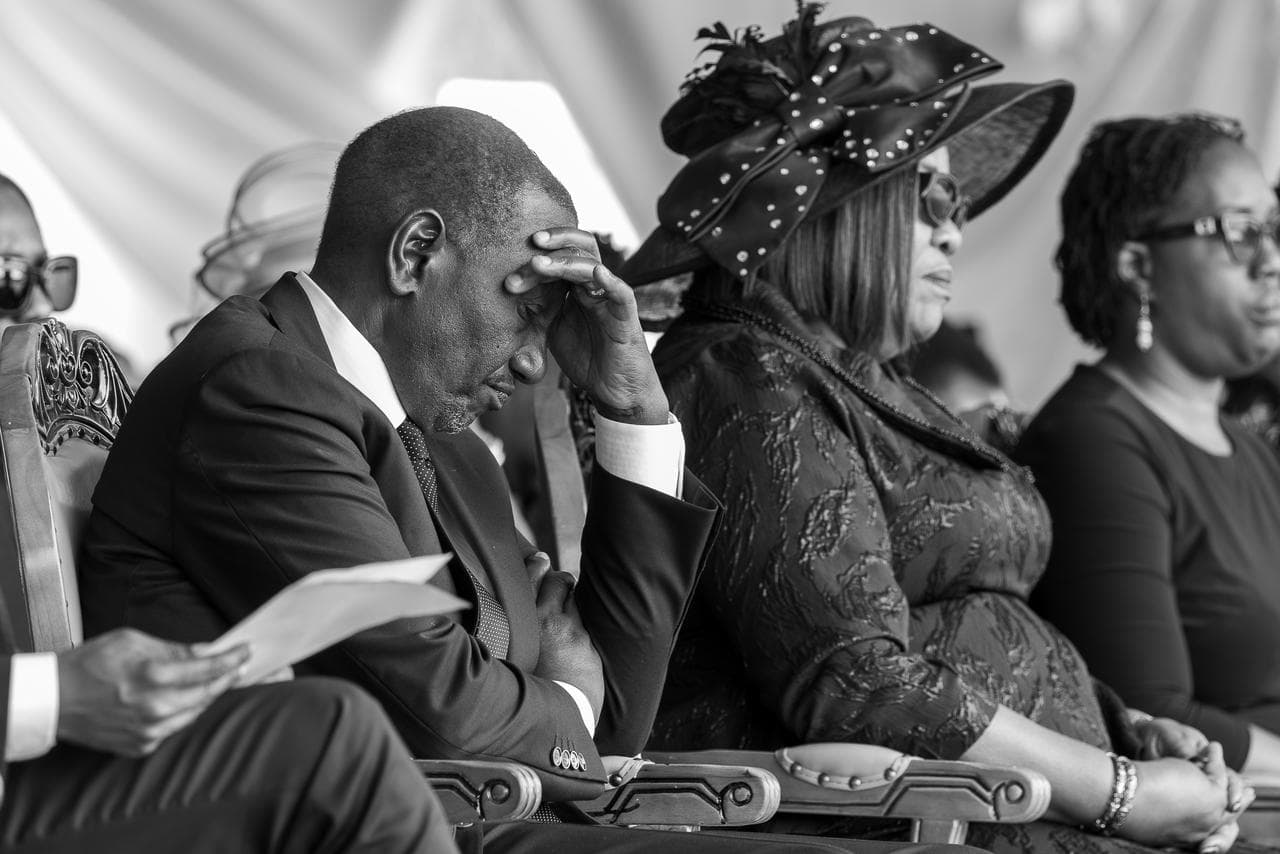We're loading the full news article for you. This includes the article content, images, author information, and related articles.
President William Ruto has revealed the extent of former Prime Minister Raila Odinga's health struggles in the weeks leading up to his death, shedding light on the government's efforts to facilitate his medical care abroad.

President William Ruto, speaking on Sunday, October 19, 2025, at the funeral service of former Prime Minister Raila Odinga in Bondo, Siaya County, disclosed that Odinga had endured a difficult and prolonged battle with a serious health condition in the month and a half preceding his death. The President detailed efforts by Odinga's family and the government to secure specialized treatment abroad, highlighting the personal and political bond between the two leaders.
According to President Ruto, Odinga's health had sharply deteriorated over the past six weeks, necessitating medical attention in Dubai and other international hospitals. "The last one and a half months were very difficult times. Every time I met Baba, his voice was hoarse. He kept telling me he was weak because of the medication he was taking, and I became very concerned," Ruto recounted. Odinga had informed the President that doctors in Dubai and American hospitals had expressed concern about his worsening condition, prompting his medical team, led by Dr. Oluoch Olunya, to repeatedly adjust his treatment plan.
Despite his illness, Odinga remained actively engaged in national affairs. President Ruto noted that while attending the United Nations General Assembly in New York in September, he maintained regular contact with Odinga to monitor his progress. Upon Ruto's return, Odinga, who was resting in Malindi on doctor's advice, met with the President at his Karen home in Nairobi.
It was during this meeting, attended by Mama Ida Odinga and Odinga's elder brother Dr. Oburu Odinga, that the decision to fly the opposition chief abroad for advanced medical care was reached. "He told us how he was feeling, and we all agreed we didn't want any guesswork regarding his health. We assured him the government would facilitate whatever treatment he needed. At first, he mentioned Germany and then China, but ultimately, he chose India," Ruto revealed. The government, as confirmed by President Ruto, covered Odinga's medical expenses.
Odinga, 80, passed away on Wednesday, October 15, 2025, in Kochi, India, where he was receiving treatment at the Sreedhareeyam Ayurvedic Eye Hospital and Research Centre. President Ruto also shared the emotional details of how he received news of Odinga's critical condition and subsequent death. He received a WhatsApp text from Dr. Oburu Oginga at 6:45 AM on Wednesday, October 15, stating that his brother was critically ill. Ten minutes later, Dr. Oburu called again to inform the President that "it appears we have lost Baba."
The information was later confirmed by Odinga's daughter, Winnie, who was with him in India. President Ruto described Odinga's death as a profound personal and political loss, acknowledging its significant impact on the nation.
The health of public figures in Kenya has often been a subject of public interest and speculation. While health is a personal matter, when it concerns a leader, it becomes a legitimate public concern due to its potential impact on national direction. The media's role in reporting such sensitive issues requires accuracy, compassion, and restraint to avoid speculation.
Historically, there have been instances where the health status of Kenyan leaders has been shrouded in secrecy, leading to rumors and distrust. This recent transparency from President Ruto marks a notable shift, providing a more open account of a prominent leader's final health journey.
Kenya's healthcare system has been undergoing reforms, with a push towards Universal Health Coverage (UHC). The Social Health Authority (SHA) aims to ensure that all Kenyans can access essential medical care. Transparency and accountability in the health sector remain crucial, as corruption has historically plagued the sector, draining resources and undermining public trust.
The government's facilitation of Odinga's treatment abroad underscores the commitment to providing advanced medical care, particularly for national figures. However, it also highlights the disparities in access to such specialized care for the general populace, a challenge UHC aims to address.
While President Ruto provided details on Odinga's health struggles and the government's support, the specific nature of the serious health condition Odinga battled has not been publicly disclosed. This omission leaves some questions regarding the exact medical challenges faced by the former Prime Minister.
The passing of Raila Odinga marks a significant moment in Kenyan politics, potentially reshaping political alignments and discussions around leadership succession. The focus will now shift to how the Orange Democratic Movement (ODM) navigates the post-Odinga era and the implications for the 2027 general elections. Discussions on transparency in leaders' health and the continued implementation of Universal Health Coverage are also likely to remain prominent.
Keep the conversation in one place—threads here stay linked to the story and in the forums.
Sign in to start a discussion
Start a conversation about this story and keep it linked here.
Other hot threads
E-sports and Gaming Community in Kenya
Active 9 months ago
The Role of Technology in Modern Agriculture (AgriTech)
Active 9 months ago
Popular Recreational Activities Across Counties
Active 9 months ago
Investing in Youth Sports Development Programs
Active 9 months ago
Key figures and persons of interest featured in this article